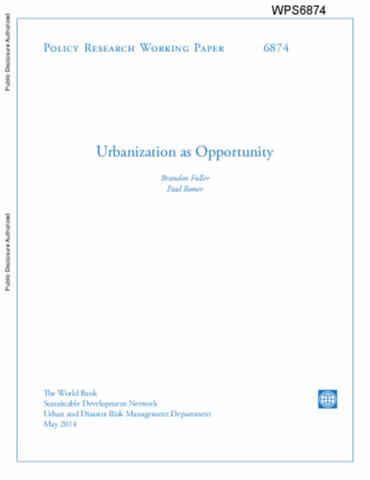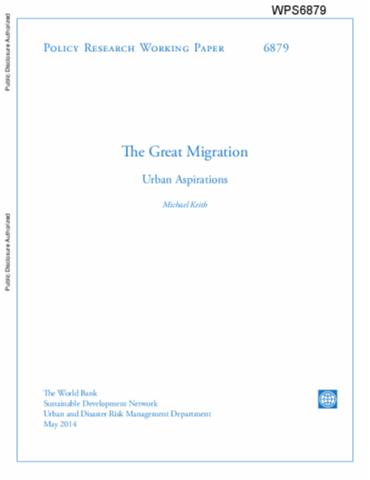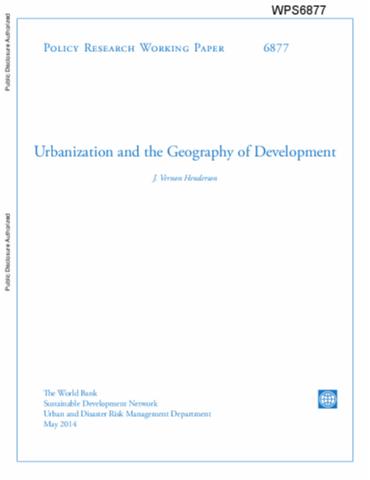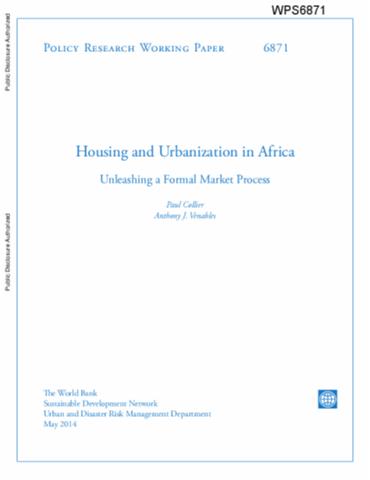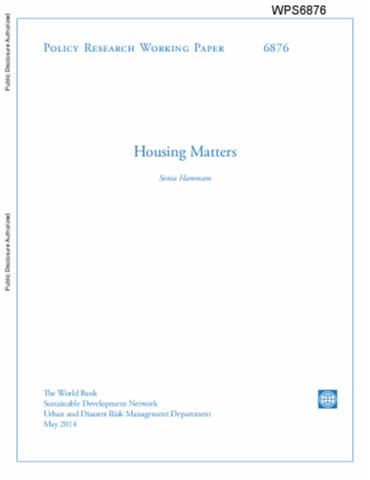The World Bank is a vital source of financial and technical assistance to developing countries around the world. We are not a bank in the ordinary sense but a unique partnership to reduce poverty and support development. The World Bank Group has two ambitious goals: End extreme poverty within a generation and boost shared prosperity.
- To end extreme poverty, the Bank's goal is to decrease the percentage of people living on less than $1.25 a day to no more than 3% by 2030.
- To promote shared prosperity, the goal is to promote income growth of the bottom 40% of the population in each country.
The World Bank Group comprises five institutions managed by their member countries.
The World Bank Group and Land: Working to protect the rights of existing land users and to help secure benefits for smallholder farmers
The World Bank (IBRD and IDA) interacts primarily with governments to increase agricultural productivity, strengthen land tenure policies and improve land governance. More than 90% of the World Bank’s agriculture portfolio focuses on the productivity and access to markets by small holder farmers. Ten percent of our projects focus on the governance of land tenure.
Similarly, investments by the International Finance Corporation (IFC), the World Bank Group’s private sector arm, including those in larger scale enterprises, overwhelmingly support smallholder farmers through improved access to finance, inputs and markets, and as direct suppliers. IFC invests in environmentally and socially sustainable private enterprises in all parts of the value chain (inputs such as irrigation and fertilizers, primary production, processing, transport and storage, traders, and risk management facilities including weather/crop insurance, warehouse financing, etc
For more information, visit the World Bank Group and land and food security (https://www.worldbank.org/en/topic/agriculture/brief/land-and-food-security1
Resources
Displaying 1641 - 1645 of 4907Urbanization as Opportunity
Urbanization deserves urgent attention from policy makers, academics, entrepreneurs, and social reformers of all stripes. Nothing else will create as many opportunities for social and economic progress. The urbanization project began roughly 1,000 years after the transition from the Pleistocene to the milder and more stable Holocene interglacial. In 2010, the urban population in developing countries stood at 2.5 billion. The developing world can accommodate the urban population growth and declining urban density in many ways.
The Great Migration : Urban Aspirations
The great 21st-century migration into cities will present both a great challenge for humanity and a significant opportunity for global economic growth. This paper describes the diverse patterns that define this metropolitan migration. It then lays out a framework for understanding the costs and benefits of new arrivals through migration's externalities and the challenges and policy tradeoffs that confront city stakeholders.
Urbanization and the Geography of Development
This paper focuses on three interrelated questions on urbanization and the geography of development. First, although we herald cities with their industrial bases as "engines of growth," does industrialization in fact drive urbanization? While such relationships appear in the data, the process is not straightforward. Among developing countries, changes in income or industrialization correlate only weakly with changes in urbanization. This suggests that policy and institutional factors may also influence the urbanization process.
Housing and Urbanization in Africa : Unleashing a Formal Market Process
The accumulation of decent housing matters both because of the difference it makes to living standards and because of its centrality to economic development. The consequences for living standards are far-reaching. In addition to directly conferring utility, decent housing improves health and enables children to do homework. It frees up women's time and enables them to participate in the labor market. More subtly, a home and its environs affect identity and self-respect.
Housing Matters
Housing matters to the livability of cities and to the productivity of their economies. The failure of cities to accommodate the housing needs of growing urban populations can be seen in the proliferation of poorly serviced, high-density informal settlements. Such settlements are not new in the history of rapidly growing cities, their persistence results as much from policies as from economics and demographic transition. Slums have attracted most of the attention on urban housing in developing countries, and the Millennium Development Goals have given prominence to their reduction.






